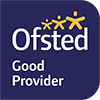School Council
Two pupils from each Key Stage 2 class represent the views of the children in their class on the Mountbatten School Council. Voting for representatives takes place at the start of the Autumn Term, with all pupils able to nominate themselves to be a School Councillor and all present a case to their peers as to why they should be chosen.
The School Council meetings are led by Miss Jewitt and take place regularly to discuss issues and consider solutions for these.
These are some of the things that the School Council have been involved with:
- Creating a Chatter Zone on the KS2 playground
- Planning further improvements to the KS1 and KS2 playground to improve the playtime and lunchtime environment e.g. plants and flowers, reading zones
- Working alongside the IPC members to promote recycling across school
- Planning a gardening area on the school site linked to the PSQM
- Writing questions to ask Karl Turner (MP) to ask during his visit
- Representing the school when visitors attend school
- Liaising with IPC members and supporting them in their roles
This year we are focusing on climate change and how to make the school more environmentally friendly.
Head Boy and Head Girl
The Head Boy and Head Girl are a role model to our pupils and will liaise with the Senior Leadership Team to ensure the school runs smoothly. They will deal with everyday issues such as greeting visitors, resolving issues and communicating with lunchtime supervisors. They are the voice of the school and will lead assemblies, information events and inform children of changes to school life.
Deputy Head Boy and Girl
The Deputies support the Head Boy and Girl in the running of the school. They will be involved in sharing information, assemblies and finding out pupil’s views and opinions.
Elections for Head and Deputies
The Head Boy and Head Girl play a crucial part in the life of the school. At the beginning of a new academic year, the school hosts an election campaign for the children to decide who will be best to represent the school. All children have the opportunity to vote for who they want to take on these important roles in school.

“There are respectful relationships between adults and pupils.”

“Teachers check what pupils have learned and remembered each term.”

“Subject leaders are knowledgeable about their subjects.”

“Pupils access a range of visits and activities beyond their own experiences.”

“Pupils recommend the school to their friends.”

“Leaders have thought carefully about the curriculum plans they have introduced.”

“Pupils support each other well when they are completing their work.”

“Pupils say that behaviour is good.”

“Children start to learn to read as soon as they enter the school.”

“There is a strong team culture within the school.”

“The early years environment is inviting and well organised.”

“Leaders have considered what pupils might need to know to broaden their understanding of the world around them.”

“Staff welcome the highquality training they receive. They feel proud to work in the school.”

“Pupils learn how to keep safe when using the internet.”

“Curriculum plans are well sequenced.”

“The school is calm and orderly. Pupils walk around school sensibly and are courteous to one another.”

“Leaders and teachers make regular checks to see how well pupils with special educational needs and/or disabilities (SEND) are doing.”

“There is a clear focus on the teaching of early mathematics and reading.”

“Senior leaders, alongside the multi-academy trust, have provided subject leaders with training.”

“Pupils listen carefully to what adults say. They join in class discussions enthusiastically.”

“Teachers appreciate the support they receive from subject leaders to help them improve their teaching.”

“Leaders work well
with members of the multi-academy trust to support staff.”

“The ‘Mountbatten 50’ challenges pupils to complete a range of interesting activities
before they leave the school.”

“The school enjoyed recent success when the computing club won a local area competition using their coding skills.”

“Pupils enjoy learning about a wide range of subjects.”

“Teachers who are new to the school welcome the support they receive.”

“Adults help pupils who fall behind.”

” Some teachers check carefully to find out which pupils are stuck and which pupils need further challenge during lessons.”

“Staff encourage
pupils to be independent from an early age.”

“There are a wide range of school clubs.”

“Staff work closely with professionals from external agencies to provide support for pupils with SEND.”

“Pupils enjoy attending school.”

“Pupils say they feel safe in school.”

“Children settle into school quickly.”

“The residential visit to Robinwood encourages pupils to experience new challenges and work collaboratively with their friends.”

“Staff are well trained in teaching children to read.”



